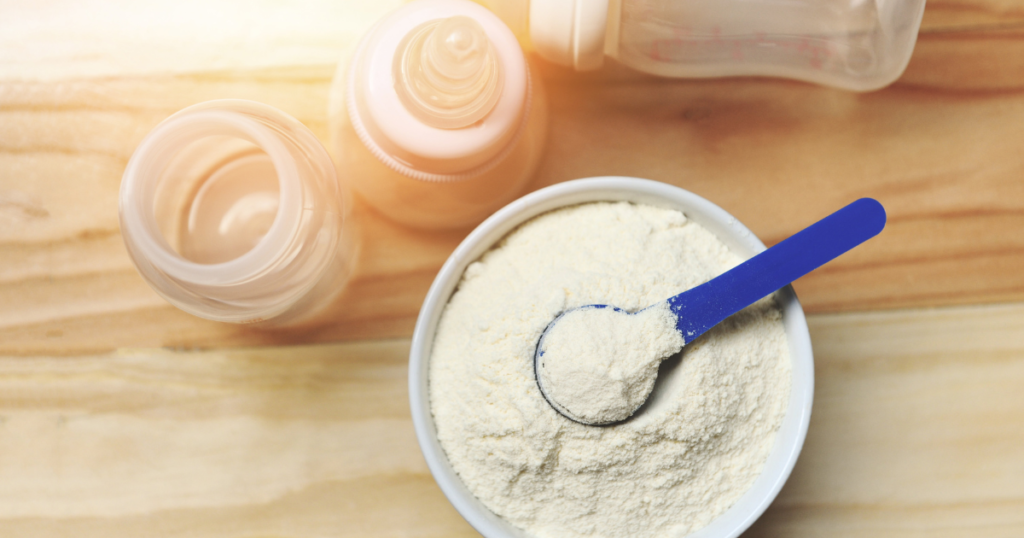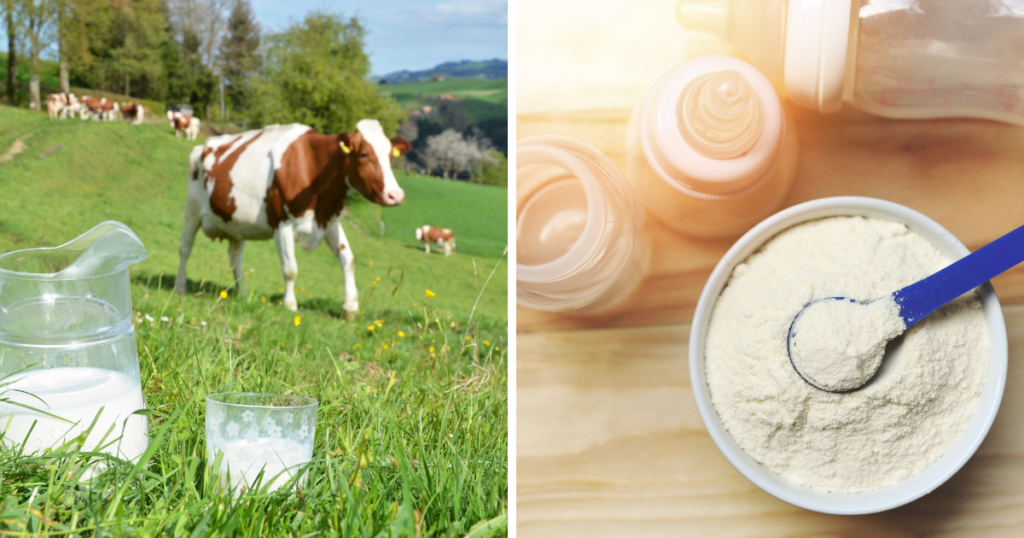Are you concerned about giving toddler formula to your little one? Every parent wants the best nutritional needs for their little one’s health and development. Toddler years are the time when children accept new tastes and touch. They need vital nutrients by getting a variety of foods. Breast milk and infant formula are best for your child as an infant. But now as they enter into toddlers’ age they need essentials for growth and development through toddlers’ formula milk and solid food.
Not long ago, there was some rumor by pediatricians about a toddler’s formula lacking vital nutrients and being unhealthy for growing children. But is this true? Let’s delve into this topic and explore some baby formula side effects, advantages, and potential risks of using it.
Short Intro Of Toddler Formula milk

First, you have to know what exactly toddler formulas are. It is very different from infant formula. Toddler formula is a milk supplement given to the child at the age of 1 to 3 years. It is an alternative to breast milk or cow milk and is increasingly becoming popular among parents. These formulas are specially made to meet the essential nutritional needs of growing children.
Experts didn’t suggest toddlers drinking infant formula. Toddler formula may be an option for those who didn’t eat well, so it helps in fulfilling nutrient gaps.
Fact Or Fiction: Toddlers Formula milk lacks nutritional benefits.
Toddlers formula milk is a very convenient option for busy parents. They are specifically fortified with a required range of vitamins, minerals, and macronutrients. However, according to some pediatricians, toddler formulas as compared to whole foods are unhealthy and lack vital nutrients. Well, It’s true! That solid food has a wide range of nutrients.
When your child is at the age of discovering taste buds, then formula milk is not a good option as it reduces the child’s appetite. Introduce them with a variety of foods, such as fruits, veggies, whole grains, and lean protein which has natural fiber, carbohydrates, minerals, and calcium. In this way, you can keep your child away from the bottle as it has a higher chance of tooth decay.
Substitute of Toddlers Formula milk
Well, there are some alternatives to the toddler formula for the concerned parent. There is a controversy over toddler formula vs milk. So, here are some best advice from nutrition experts:
-
Breast Feeding/ Milk:
Breast milk is considered the best and prime option for infants as well as toddlers. It has many health benefits because it naturally contains nutrients.
-
Solid Food:
This is the perfect age to introduce variety and flavorful food into your child’s diet. Make sure to focus on your child’s tastes. Providing them with fruits, vegetables, protein, and some grains that meet their nutritional needs.
-
Cow milk/ goat milk:
It is considered the primary drink that will be given to children after the age of one. Cow milk has full fat and calories as compared to goat milk. So consider your child’s specific health and decide what’s best fit for them.
Cow Milk vs Toddler Milk; A Closer look at pros and cons.

Milk is an essential part of a toddler’s health as it helps to build strong bones. As your baby becomes a toddler, they only need to intake 2 cups( 500ml) of milk in 24 hours. You may have difficulty in choosing what kind of milk to serve your kid after the age of 1. Here are some points to consider before introducing them.
Cow milk:
It is a very cheap milk of all and easily available at any time. It is rich in calcium, proteins, and vitamins that support overall health and brain development. Cow milk is easy to digest.
However, it is low in iron and is not suitable for a toddler with allergies or lactose intolerance. Cow milk should be given to children after the age of 1 or 2. The shelf life of cow milk is just 24-48 hours. It takes longer to warm up.
Toddler milk:
These formulas are very convenient for working parents, as it is easy and ready to use. It doesn’t require heating or boiling like cow milk. It contains iron, probiotics, and vitamins A, C, and E that boost the immune system. Cow milk is suitable for children with lactose intolerance.
But they are way too costly than cow milk and not easily available everywhere. It contains high levels of sugar and fats, leading to digestive problems. Baby formula risk of obesity in toddlers.
What Experts Say About the Toddler Formula? Let’s Take A Pediatrician’s Perspective.

There is a debate going on between pediatricians about toddler formulas. The opponent believes that toddler formulas contain excessive amounts of sugar, fat, and artificial flavor. This will lead to obesity, iron and vitamin D deficiency, and tooth decay. Some experts raised their voices against toddler formula:
- Dr. William H.Smith, a famous pediatrician, highlights that toddler formulas lack nutritional benefits. Such key nutrients are iron, vitamin D, and omega-3 fatty acids.
- Dr Johnson, a pediatric nutritionist, states that most toddler formulas contain extreme amounts of added sugar which can develop a sweet tooth and lead to unhealthy eating habits and chronic diseases.
- The clinical report presented by the American Academy of Pediatrics (AAP) stated that toddler formulas are unhealthy and lacking in calcium, phosphorus, magnesium, and vitamin D
- A registered pediatric nurse, Lauren Thayer, noted that “ Many of these formulas contain artificial sweeteners and fats that add unnecessary and empty calories. Beyond that these formulas are often expensive.”
The End:
Although toddler formula may seem like a popular and convenient option, it is critical to consider the expert’s opinion that warns about baby formula risks. Indeed, these formulas can’t replace a balanced diet of real food. So decide according to what’s best for your child’s needs, and your lifestyle, and in consultation with your nutritionist expert.
Just remember to focus on key points for the healthy development of your toddlers, highlighting diet-rich foods, avoiding high-sugar formulas, and consulting with your healthcare professionals.


